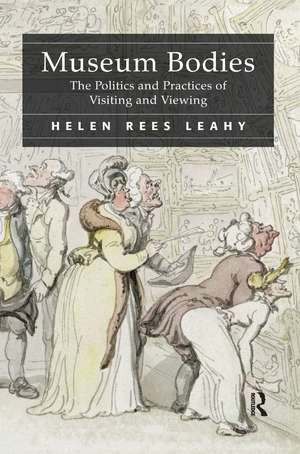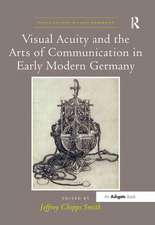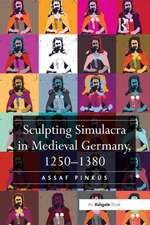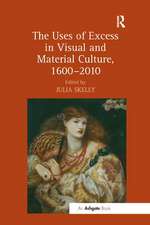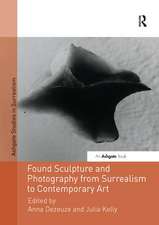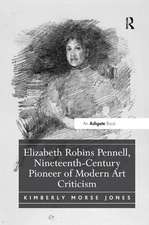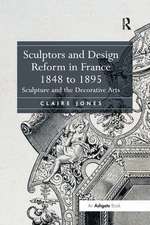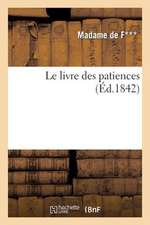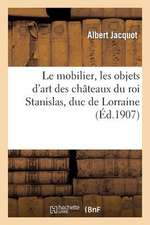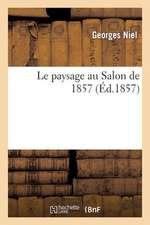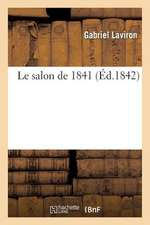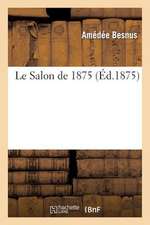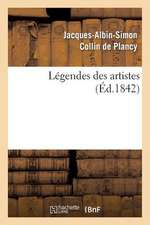Museum Bodies: The Politics and Practices of Visiting and Viewing
Autor Helen Rees Leahyen Limba Engleză Paperback – 9 sep 2016
| Toate formatele și edițiile | Preț | Express |
|---|---|---|
| Paperback (1) | 482.35 lei 6-8 săpt. | |
| Taylor & Francis – 9 sep 2016 | 482.35 lei 6-8 săpt. | |
| Hardback (1) | 948.98 lei 6-8 săpt. | |
| Taylor & Francis – 15 oct 2012 | 948.98 lei 6-8 săpt. |
Preț: 482.35 lei
Nou
Puncte Express: 724
Preț estimativ în valută:
92.32€ • 95.14$ • 77.94£
92.32€ • 95.14$ • 77.94£
Carte tipărită la comandă
Livrare economică 03-17 martie
Preluare comenzi: 021 569.72.76
Specificații
ISBN-13: 9781138248113
ISBN-10: 1138248118
Pagini: 216
Dimensiuni: 156 x 234 x 12 mm
Greutate: 0.45 kg
Ediția:1
Editura: Taylor & Francis
Colecția Routledge
Locul publicării:Oxford, United Kingdom
ISBN-10: 1138248118
Pagini: 216
Dimensiuni: 156 x 234 x 12 mm
Greutate: 0.45 kg
Ediția:1
Editura: Taylor & Francis
Colecția Routledge
Locul publicării:Oxford, United Kingdom
Notă biografică
Helen Rees Leahy is a Senior Lecturer and Director of the Centre for Museology, University of Manchester, UK. Previously Helen worked as a curator and museum director for over 12 years, and has organised numerous exhibitions of fine art and design. Helen has published on topics relating to national identity, art collecting, the art market and art criticism, and her work has addressed practices of individual and institutional collecting, in both historical and contemporary contexts, including issues of patronage, display and interpretation.
Recenzii
'...Leahy brings a fresh perspective to this topic through her focus on the physical modalities of looking, moving, and talking in the museum setting...the overall academic tone and quality of this volume make it valuable to researchers interested in both historical and contemporary museum studies...Recommended.' -Choice
'We have waited a long time for an adequate recognition that museum visitors usually bring their bodies with them, but we need wait no more. This is it - a book that brings the messy, varied, corporeal, sensate, touching, feeling, inquiring bodies of visitors into the centre of the museum scene and of museum theory. A significant book that will leave its mark on the field for some time to come.' Tony Bennett, University of Western Sydney, Australia
'This is a fascinating history, from above and below, of how from the eighteenth century to the present museums have sought to inculcate certain ideal forms of comportment in their visitors, but had to accommodate many recalcitrant bodies too. Rees Leahy intersperses her account of the making of the modern museum experience with asides that explore how certain contemporary artists have created installations that disrupt expectations and thereby expose the contingency of the many conventions (don’t touch, no running, speak softly) we now take for granted. Reading this book will radically transform your experience of the museum by sensitizing you to all the controls, but also all the other possibilities for sense-making, embedded in the contemporary museum.’ David Howes, Concordia University, Canada
'As museums shift focus from art to audience, object to experience, Helen Rees Leahy offers stimulating and overdue socio-historical perspectives on the museum visit.’ Andrew McClellan, Tufts University, USA
'Many histories of museums take an institutional perspective or recount how collections were acquired, or describe the people that acquired them. Museum Bodies stands out because it is a history of how people visit and how they physically react to what they find once they get through the museum doors.' Museums Journal
'We have waited a long time for an adequate recognition that museum visitors usually bring their bodies with them, but we need wait no more. This is it - a book that brings the messy, varied, corporeal, sensate, touching, feeling, inquiring bodies of visitors into the centre of the museum scene and of museum theory. A significant book that will leave its mark on the field for some time to come.' Tony Bennett, University of Western Sydney, Australia
'This is a fascinating history, from above and below, of how from the eighteenth century to the present museums have sought to inculcate certain ideal forms of comportment in their visitors, but had to accommodate many recalcitrant bodies too. Rees Leahy intersperses her account of the making of the modern museum experience with asides that explore how certain contemporary artists have created installations that disrupt expectations and thereby expose the contingency of the many conventions (don’t touch, no running, speak softly) we now take for granted. Reading this book will radically transform your experience of the museum by sensitizing you to all the controls, but also all the other possibilities for sense-making, embedded in the contemporary museum.’ David Howes, Concordia University, Canada
'As museums shift focus from art to audience, object to experience, Helen Rees Leahy offers stimulating and overdue socio-historical perspectives on the museum visit.’ Andrew McClellan, Tufts University, USA
'Many histories of museums take an institutional perspective or recount how collections were acquired, or describe the people that acquired them. Museum Bodies stands out because it is a history of how people visit and how they physically react to what they find once they get through the museum doors.' Museums Journal
Cuprins
Introduction; Chapter 1 Making a Social Body; Chapter 2 Not Just Looking; Chapter 3 Walking the Museum; Chapter 4 Performing the Museum; Chapter 5 Bodies of Protest; Chapter 6 Disquieting Bodies; epi Epilogue;
Descriere
Museum Bodies discusses the politics and practice of visitor studies, and the differentiation and exclusion of certain bodies on the basis of, for example, age, gender, educational attainment, ethnicity and disability. Museums are more than ever concerned with size, demographic mix and the diversity of their audiences, and the ways in which visitors engage with and respond to institutional space and content. This wide-ranging study of visitors' embodied experience of the museum is long overdue.
